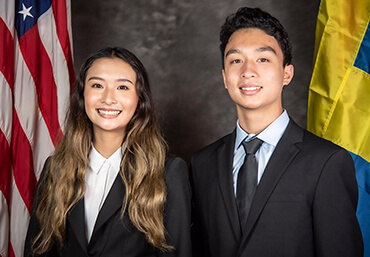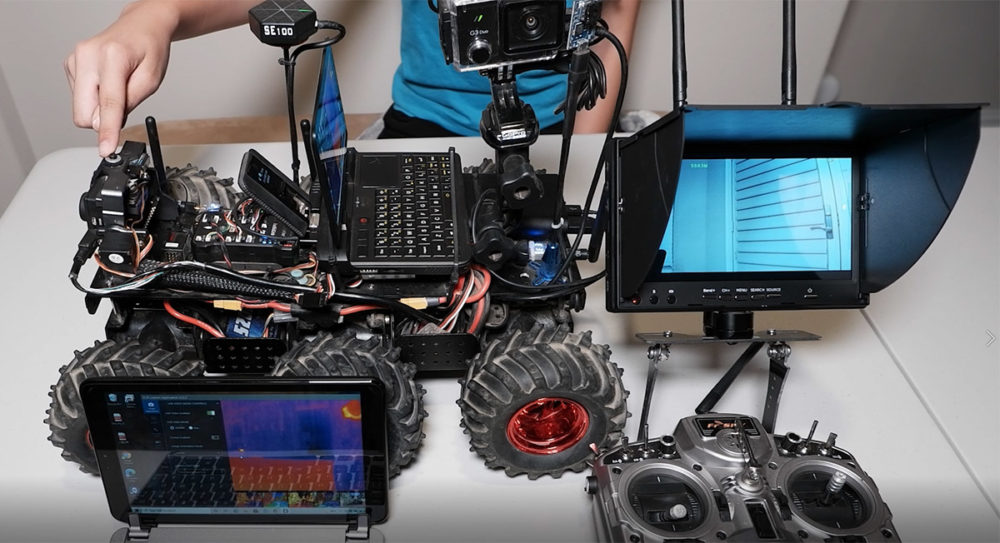
 Thank you Harris & Associates for sponsoring the California Stockholm Junior Water Prize.
Thank you Harris & Associates for sponsoring the California Stockholm Junior Water Prize.
The Water Environment Federation (WEF) proudly announces that John Benedict and Pauline Estrada, siblings from Clovis North High School in California, are the winners of the 2022 U.S. Stockholm Junior Water Prize (S.J.W.P.) for their project on conservation of irrigation water using a drought assessment tool powered by artificial intelligence.
They are the second team from California to win the U.S. SJWP and to represent America. Bay Area student Eshani Jha won the U.S. and the global competition last year. The Estradas won $10,000 and will represent the United States at the international competition in Stockholm, Sweden in August.
Students from 45 states and Puerto Rico competed in the national finals held at the Colorado School of Mines. The Stockholm Junior Water Prize is the nation’s most prestigious youth competition for water-related research and aims to increase students’ interest in water issues and careers. The competition is open to projects focused on improving water quality, resource management, protection, and drinking water and wastewater treatment.
“I had the opportunity to speak with the students at the U.S. Stockholm Junior Water Prize competition and was thoroughly impressed by their intelligence, ingenuity, and passion for solving water problems,” said Jamie Eichenbeger, WEF President. “WEF is proud to support these students as they continue to identify and explore solutions to the challenges facing our global water environment.”

AI powered field rover.
They won the California competition in April with their project, “Conservation of Irrigation Water through a Novel AI Drought Assessment (AIDA) Model in Field Grown Tomato (Solanum lycopersicum) Using a Custom-Built “Spectra-Rover.”
Development of an early detection tool to assess drought stress in plants is crucial in reducing irrigation water used to grow agricultural crops. The AIDA model was developed using field data and variables that are physiologic and direct indicators of drought stress. A custom-built Spectra-Rover was constructed with infrared (IR) and RGB cameras to capture radiometric IR and RGB plant canopy images.
Radiometric IR temperature, red, green, and blue light reflectance values, and soil moisture readings were used to train the AIDA model. Eighty percent (80%) of the data was used in the training dataset and the remaining 20% was used in the validation dataset. The AIDA model validation output was very close to the actual CWSI values with a low mean absolute error. A prediction output program was coded and appended to the AIDA model to output an AIDA score.
This accurately approximated the manually calculated CWSI values. If this novel AIDA model with an AIDA score is used on all tomato farms in California, approximately 26 billion gallons of irrigation water can potentially be saved each season.
The Estradas say that if the tool and model were used on all tomato farms in California, approximately 26 billion gallons of irrigation water could be saved each season.
The Stockholm Junior Water Prize (SJWP) is considered the world’s most prestigious award presented to a high school student for a water-research project. The Water Environment Federation (WEF) has coordinated the U.S. competition since its inception in 1997, and partners closely with their Member Association (MA) to execute the program. This competition is a great example of how science and innovation can impact water and water quality.
CWEA also wishes to congratulate 2nd and 3rd place winners, Alexandre Beaudin “Energy Efficient Water Desalination: Low Differential Pressure Mechanical Vapor Recompression with Concurrent Heat Transfer” and Christopher & Nicholas Kwok “Eukaryotic Algicide: Environmental Remediation of Harmful Algal Blooms via Microencapsulation for Bioactivation of Programmed Cell Death.” The future of clean water relies on future water leaders like Alexandre, Christopher, Nicholas, John and Pauline. Congratulations to all winners!
Learn more about CWEA’s SJWP competition and encourage students to apply >